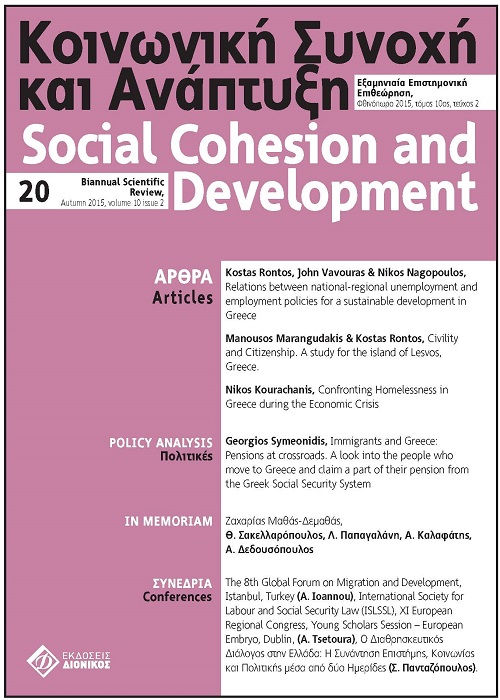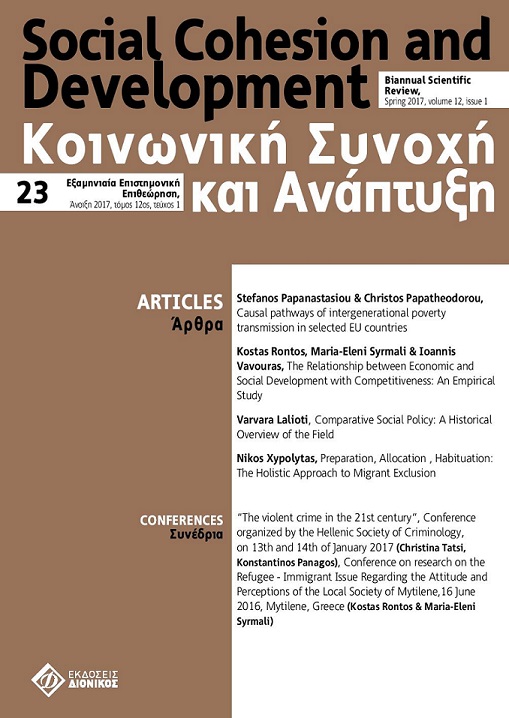Relations between national-regional unemployment and employment policies for a sustainable development in Greece
Abstract
The extent of unemployment constitutes one of the most basic indicators of sustainable development and particularly in the field of socioeconomic development, given that the extended unemployment, especially of the youth, cannot be considered to be compromising with the concept of sustainable development, as it restricts the possibilities of an important part of society to satisfy its needs, in the present and in the future too. Labor, when using the linear regression analysis, defines the relations between regional and national employment and unemployment in Greece, in order to reveal the reactions of each of the 13 regions of the country to the national trends for a period of 16 years, between 1998 and 2013. The differentiations that are revealed are considered crucial in the implementation of a regional strategy against unemployment, in order to achieve better prospects of economic development, to reduce the unemployment rate of each particular area and to implement an integrated strategy of sustainable development of the country.
Article Details
- Zitationsvorschlag
-
Rontos, K., Vavouras, J., & Nagopoulos, N. (2016). Relations between national-regional unemployment and employment policies for a sustainable development in Greece. Social Cohesion and Development, 10(2), 81–97. https://doi.org/10.12681/scad.9974
- Ausgabe
- Bd. 10 Nr. 2 (2015)
- Rubrik
- Articles

Dieses Werk steht unter der Lizenz Creative Commons Namensnennung - Nicht-kommerziell - Weitergabe unter gleichen Bedingungen 4.0 International.
Authors who publish with this journal agree to the following terms:
- Authors retain copyright and grant the journal right of first publication with the work simultaneously licensed under a Creative Commons Attribution Non-Commercial License that allows others to share the work with an acknowledgement of the work's authorship and initial publication in this journal.
- Authors are able to enter into separate, additional contractual arrangements for the non-exclusive distribution of the journal's published version of the work (e.g. post it to an institutional repository or publish it in a book), with an acknowledgement of its initial publication in this journal.
- Authors are permitted and encouraged to post their work online (preferably in institutional repositories or on their website) prior to and during the submission process, as it can lead to productive exchanges, as well as earlier and greater citation of published work (See The Effect of Open Access).




